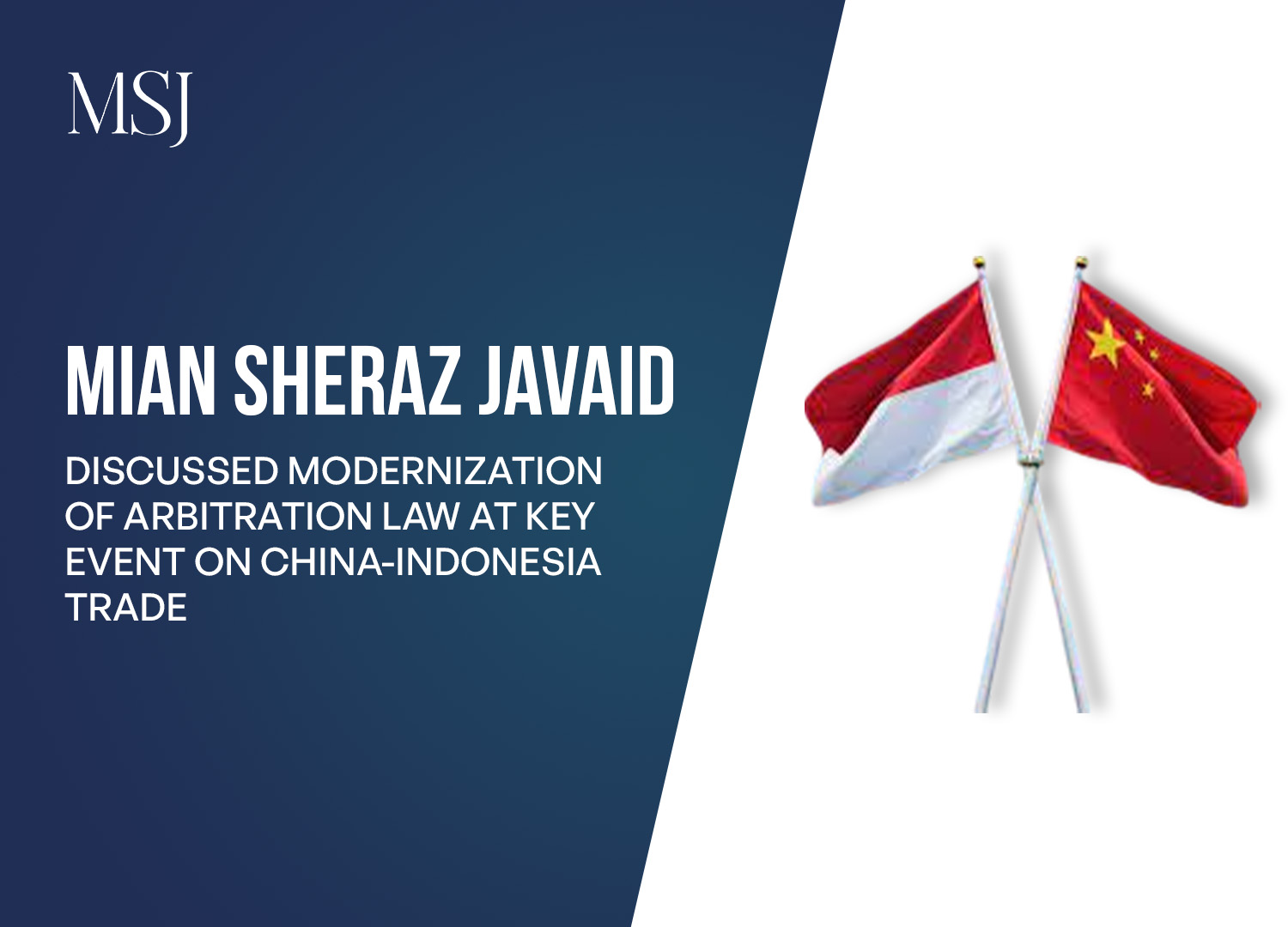Understanding Arbitral Awards: Enforcement, Challenges, and Jurisdictional Dynamics in International Arbitration
Mian Sheraz Javaid was invited to Nepal as an expert trainer for the South Asia Regional International Commercial Arbitration Information Exchange, conducted between the 24th June and 26th June 2024 in Kathmandu at NEPCA. The three-day training covered the main procedural stages of an arbitration proceeding. Sheraz, alongside Tony Andriotis, delivered a lecture designed to equip practitioners with practical insights on managing an arbitration proceeding.
Mian Sheraz Javaid presented an informative lecture on the concept of arbitral awards in international arbitration, discussing the legal framework governing their form, content, and enforcement. In this session, he emphasised that an arbitral award is a binding decision issued by an arbitral tribunal to resolve a dispute, creating legal rights and obligations for the parties involved. The idea of these awards is that they must be enforceable immediately, although they are not automatically so. An award becomes enforceable in the light of local laws and international agreements, particularly the New York Convention, which facilitates enforcement in the 172 signatory countries.
Sheraz discussed the various types of arbitral awards, including interim, partial, performance, jurisdictional, and final awards, each serving distinct purposes in the dispute resolution process. Interim awards offer temporary resolutions, while final awards definitively resolve all claims. Partial awards address unresolved claims, and jurisdictional awards determine the tribunal’s authority to adjudicate the matter.
The lecture also discussed the Model Law on International Commercial Arbitration, which specifies the conditions that must be met for an arbitral award to be valid. The law states that the award must be in writing, signed by the tribunal, and include the reasons for the award, the date, and the place of arbitration. In addition, it must be communicated to the parties to avoid ambiguity and obscurity in the process of reaching the award. These formalities are of utmost importance for the enforceability of the award.
ENFORCEABILITY dOF ARBITRAL AWARDS
Sheraz elaborated that while arbitral awards are final, they do not automatically hold an enforceable position. It largely epends on the jurisdiction to which enforcement is made, and international legal systems regulate the practice of enforcement in specific ways, notably under the NYC. However, under the NYC, generally, national courts should enforce awards unless there are specific grounds for refusal, such as a lack of reciprocity or restrictions on the enforcement of awards in non-commercial matters. The advantage of the NYC is the abolition of the double exequatur rule since two court proceedings were initially involved to enforce an award within a foreign jurisdiction.
He also emphasised the role of recognition and enforcement of arbitral awards, especially when the respondent refuses to implement the award. The courts within the jurisdiction of the assets of the debtor would play a key role in such a process. The Model Law ensures that arbitral awards are recognised as binding across borders, although local laws may require that the award be translated into the local language before enforcement can proceed. Enforcement challenges may arise due to factors such as the location of the debtor's assets or the jurisdiction's willingness to enforce international agreements.
Sheraz addressed the difficulties of enforcement in the case that the assets are spread across many countries or, in some instances, involve state-owned assets, which can create a problem under the principle of sovereign immunity, thus impeding enforcement against state-owned assets. In those cases, it becomes very crucial to identify what jurisdiction will take place, for the local courts have to acknowledge the arbitral award and implement it within the local jurisdiction. Multi-jurisdictional enforcement may be required if the debtor’s assets are located in different countries, and local courts must recognise the award for enforcement to proceed.
The lecture also covered enforcement mechanisms such as Third Party Debt Orders (TPDOs), charging orders, and receivership. TPDOs allow creditors to intercept debts owed to the debtor by third parties, while charging orders enable creditors to secure debts against the debtor’s property. Receivership is the appointment of a neutral party to manage the assets of the debtor. Sheraz highlighted that differing local legal systems can lead to an application of these enforcement mechanisms and that enforcement can be a cross-jurisdictional process, requiring a good understanding of the relevant national frameworks and procedural requirements.
The losing party can resist enforcement, Sheraz went on to explain. He discussed active remedies, where the losing party applies to the court of the arbitration seat to annul the award, often on specific grounds such as procedural errors or lack of jurisdiction. Passive remedies, on the other hand, involve resisting enforcement in the jurisdiction where the award is sought by citing reasons like violations of public policy. The importance of jurisdiction in these challenges was emphasised, as the legal grounds for contesting enforcement can vary between jurisdictions.
SETTING ASIDE ARBITRAL AWARDS
The lecture touched upon situations where an award is set aside, either partially or in full. When this happens, the legal validity of the award ceases, and it can no longer be enforced. Sheraz explained that the annulment of an award raises several issues for the parties involved, such as whether they must restart arbitration or if the arbitration agreement remains valid. Jurisdictions differ in their approach to the validity and consequences of a set-aside award. Some countries, such as Germany and Switzerland, will remand the case back to the tribunal for a new award, whereas others will deny further action by deeming the tribunal "functus officio"—without further power to act.
Sheraz further analysed the disparate methods of implementing set aside awards within different jurisdictions. The Classical/Territorial Approach holds that an award set aside in the seat country is unenforceable elsewhere, whereas the Internationalist/Delocalised Approach may enforce the award even if it has been annulled at the seat, provided it would not have been set aside in the enforcing jurisdiction. Several countries, such as France, the U.S., and the Netherlands, are more flexible in their internationalist approach, reflecting a broader trend toward recognising the global nature of arbitration.
CONCLUSION
For his closing, Sheraz reminded the audience that in many countries, there is a strong principle that an awarded set-aside amount is not enforceable. But flexibility in jurisdiction is building rapidly, and this is trending on the internationalism side of arbitration. This may keep courts moving toward an even more internationalist stance in balancing what is perhaps seen as an important part of public policy with the recognition to sustain the legitimacy of arbitral awards worldwide.







